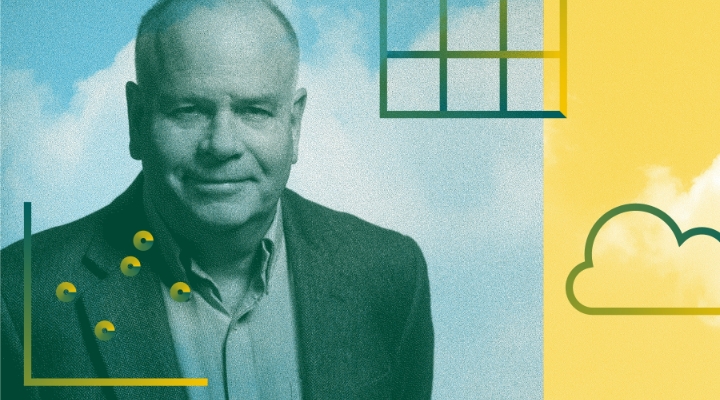
I’ve never been particularly on it when it comes to fads. I see most movies months after they come out, indulge myself with “new” music releases long after the hype has passed, and try trendy foods only with the greatest of cynicism. I didn’t even learn to “floss” until the very end of 2019, some two years after the fad went viral. When Wordle arrived I got into it fast, but that was a truly exceptional outlier. Fidget spinners were beyond me.
Here's a term I’m all over, though: goblin mode. Never heard of it? Nor had I this morning. It’s a complete counterpoint to all that wholesome stuff we learned to do in lockdown. Forget reading for the sake of reading, making sourdough bread, or pounding the streets for that elusive PB. As The Hustle put it earlier today, goblin mode is “a full-on rejection of self-betterment”.
Be lazy, then. Have those snacks late at night if you want them. Wear comfy clothes to that wedding. Definitely don’t bother apologising if you don’t think you’ve done anything wrong, as Brits are so often wont to do.
The sense of doom prompted by events in Ukraine makes “letting go” feel even more tempting. Life as we know it could be over very quickly if the man in Moscow has another of his pathetic (and deadly) tantrums.
Conflicting Messages
I neither endorse nor reject goblin mode (though I do think there is something to be said for embracing our true and authentic selves), but the concept says to me the cultural pendulum has swung. We are done with living, laughing and loving. Switching off is now the done thing.
As a confused bystander, I watch that pendulum in bewilderment, genuinely not knowing how to respond. The binary nature of that dilemma arguably reveals my naivety, but I won’t self-censor. I feel the dilemma, and the debate in my head could not be more pronounced than when it comes to cash.
These days, investors are being swamped with all sorts of conflicting messages. Here's one from this week. The below is an excerpt from my conversation with Morningstar Investment Management’s global chief investment officer Dan Kemp, who joined me in the virtual studio from Chicago this week to highlight that well-meaning but equally naïve traders were hoping to make a quick buck from the market impact of peace talks in Europe. Rightly, Dan pointed out that this is a terrible idea.
At the end of the conversation, I asked him for his thoughts on other problematic investing behaviours. Read it for yourself:
Me: Are there any other concerning investor behaviours you're seeing?
Dan: There's two other behaviours people need to think about alongside this desire to fight what's happening in the market. The first is one of “flight”, where people sell their investments and move to cash. That can appear a good strategy if markets subsequently fall, but most people that do that aren't very good at getting back into their investments at a more opportune time. And so, holding cash for too long when you're saving for your long-term future can really have a negative impact on your returns and imperil your future wellbeing.
Dan (again): Finally, we see the desire that people have to freeze, to not do anything at all. And actually, that can also be a mistake. You need to think about the long term, but seemingly where changes need to be made, then it's important to do that, not just ignore what's going on.
Me (now, writing this article): Confused?
Do Nothing, But Do Something
If you’re new to investing and personal finance, what this conversation essentially boils down to is “should I do something?”, and, if I should, is anything better than nothing? My sympathies here, because you could be forgiven for feeling lost. “Sell.” “Don’t sell.” “Sell, but don’t sell too quickly.” “Buy and hold.” “Hold, but not for too long mind you!” The world is full of very conflicting messages.
You are not alone. Furthermore, it is not your fault. The culture that underpins the way we interact with money could not be more conflicting. Certain things, like your state pension, are taken care of on your behalf, and, if you’re really lucky, you might have one of those fancy defined benefit pensions. Hard work accounted for, you may have had to do very little administratively to enjoy it. They were a product of a different time, when workers kept their eye not on what was in their pension fund but the number of years they’d accrued in it. Lots of people have done very well out of that peculiar version of goblin mode.
Spin the wheel, though, and there are all sorts of situations in which your engagement is not just optional, but a necessity. The array of tax rules surrounding dividends, capital gains, and pensions allowances mean the personal finance world has never looked more like a minefield. And, for younger savers like me, thrust into becoming our own portfolio managers through auto-enrolment, there is such an array of consumer choice, some days it feels like it is impossible to make decisions.
I have no answer to this, beyond a rant I know I have already written about governments getting their actual ducks in a row and using incentives to establish a clearer vision for money culture, social justice, and intergenerational fairness. Furthermore (and I don’t want to sound too gloomy), unlike the cultural pendulum, it seems unlikely there will be a return “swing” back to the paternalism of yore.
In this environment, the pressure really is on. Add to that mix the spectre of inflation, and it’s easy to be worried. My one exhortation would be that patience is OK. It’s easy for me to say, but storms pass. Take some time to think things through – or not, as the case may be. And if you want someone else to do the heavy lifting, you could do no worse than seeing a good financial adviser. Perhaps goblin mode isn’t so bad after all.
Ollie Smith is UK editor at Morningstar







.jpg)




















